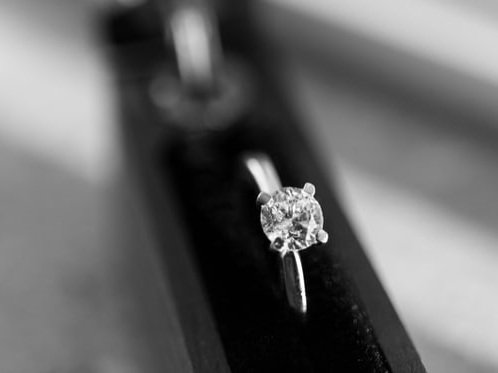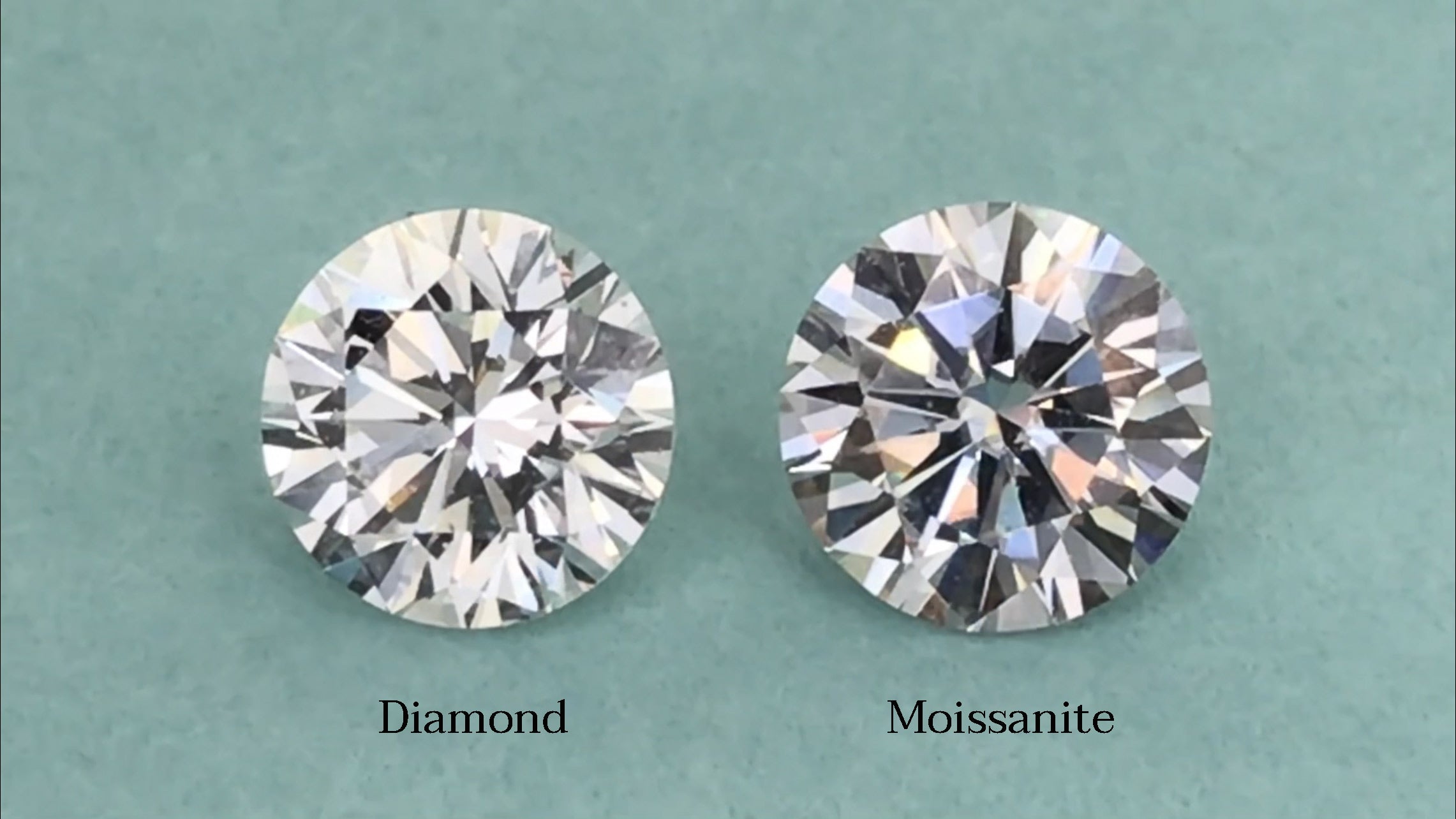Diamonds have always been regarded as one of the most precious and sought-after gemstones in the world. Whether it’s for an engagement ring, a special occasion, or as an investment, diamonds hold a significant place in both culture and personal milestones. But for those who are new to the world of diamonds, there’s one fundamental question that stands above all others: “What makes a diamond the right choice for me?” This article will tackle that #1 question, providing clarity on how to choose the perfect diamond by considering various factors, including the 4Cs, cut, color, clarity, carat weight, and more.
What Makes a Diamond the Right Choice for You?
The #1 question that every diamond buyer faces is deciding what makes a diamond the right fit. This decision can be overwhelming with so many choices available. The key to finding the perfect diamond lies in understanding your own preferences, needs, and budget. A diamond’s 4Cs — cut, color, clarity, and carat weight — are all essential factors to consider when making this important decision. Knowing how to balance these attributes will help you select a diamond that matches your vision and fits within your financial plans.
Choosing a diamond can be a very personal experience, with each individual having unique preferences when it comes to size, shape, and quality. Understanding how the 4Cs influence a diamond’s overall appearance and price will guide you in determining which aspects matter most to you.
The Importance of the Cut in Diamonds
The #1 question regarding diamonds often revolves around the cut, as it has the greatest impact on a diamond’s sparkle and brilliance. The cut refers to how a diamond has been shaped, polished, and faceted. A well-cut diamond will exhibit superior brilliance, meaning it reflects light in a dazzling manner. A poorly cut diamond, on the other hand, will lack sparkle, making it appear dull or lifeless.
When selecting a diamond, consider the cut as the most significant factor in determining its visual appeal. The cut can greatly affect how light travels through the diamond, and how well it shows off its fire and brilliance. For example, a round brilliant cut is one of the most popular and desirable shapes due to its ability to maximize sparkle. Understanding the cut of a diamond answers the #1 question of what makes a diamond truly stand out from the rest.
Understanding the Color of Diamonds
Color is another key factor in answering about diamonds #1 question. When it comes to diamonds, the ideal color is actually no color at all. The most valuable diamonds are those that are colorless, as they allow light to pass through without distortion, maximizing their brilliance. Colorless diamonds are graded from D to F, with D being completely colorless and highly sought after.
However, diamonds with slight yellow or brown hues, which fall in the G to Z range, are also available and may be more affordable. The presence of color in a diamond can significantly affect its price, so it’s important to understand how the color grade will impact your decision. For many, a near-colorless diamond with a grade of G or H is the perfect balance of quality and affordability, answering the #1 question by offering a beautiful and budget-friendly option.
Clarity: Why It Matters in a Diamond
Clarity is yet another key factor in answering the #1 question regarding diamonds. Clarity refers to the presence of internal or external imperfections, also known as inclusions and blemishes. A diamond with fewer inclusions or blemishes will appear clearer, enhancing its overall beauty.
Diamonds are graded on a scale from Flawless (no visible inclusions or blemishes) to Included (inclusions visible to the naked eye). Most diamonds fall somewhere in between, with clarity grades such as VS1, VS2, or SI1 providing excellent options for those looking for a high-quality stone at a more affordable price.
While clarity plays a role in a diamond’s value, many imperfections are microscopic and not noticeable to the naked eye. For most buyers, diamonds with slight inclusions (VS1 or VS2) provide the best value without compromising on appearance. In this sense, clarity helps answer the #1 question by guiding buyers toward diamonds that strike the perfect balance between quality and cost.
Carat Weight: How Size Affects the Diamond’s Appeal
Carat weight is the measure of a diamond’s size, and it is often the first thing people think about when buying a diamond. While size does matter, it’s important to note that carat weight alone doesn’t determine a diamond’s overall quality. A larger diamond can sometimes look less impressive than a smaller one if its cut, color, or clarity is lacking.
The answer to the #1 question about diamonds often involves a choice between carat weight and the other 4Cs. For example, you may choose a smaller diamond with a better cut and color over a larger diamond with mediocre qualities. However, for those who prioritize size, it’s essential to know how carat weight affects both the appearance and price of a diamond. The right carat weight is ultimately a matter of personal preference, with some preferring a larger stone and others focusing on the overall quality of the diamond.
The Value of a Diamond Beyond the 4Cs
While the 4Cs are essential in evaluating a diamond’s quality, they don’t tell the whole story. The personal significance of a diamond, especially in cases like engagement rings or milestone gifts, adds emotional value that goes beyond the 4Cs. The #1 question is not just about finding a perfect diamond based on technical specifications but also about choosing a stone that will be cherished for years to come.
When purchasing a diamond, consider the overall aesthetic and how it fits with the recipient’s style, personality, and preferences. Whether it’s a vintage-inspired design, a contemporary solitaire, or a diamond with unique characteristics, the emotional value of the diamond is what makes it truly priceless.
Ethical Considerations in Choosing a Diamond
In recent years, ethical considerations have become an important factor for many diamond buyers. The #1 question about diamonds for some consumers involves the ethics behind sourcing them. With growing concerns about the environmental and social impacts of mining, many buyers are opting for lab-grown diamonds as an ethical and sustainable alternative.
Lab-grown diamonds have the same physical and chemical properties as mined diamonds but are created in a controlled laboratory environment, without the environmental or human rights concerns associated with traditional mining. By choosing man made diamonds, buyers can feel confident that they are making a responsible choice while still enjoying the beauty and value of a real diamond.
Conclusion: Finding the Right Diamond for You
The #1 question about diamonds—what makes the right choice—can be answered by considering the 4Cs and understanding your own preferences. Whether you are drawn to a diamond’s cut, color, clarity, or carat weight, knowing what matters most to you will help guide your purchase. Additionally, ethical concerns and personal significance should play a role in your decision-making process.



